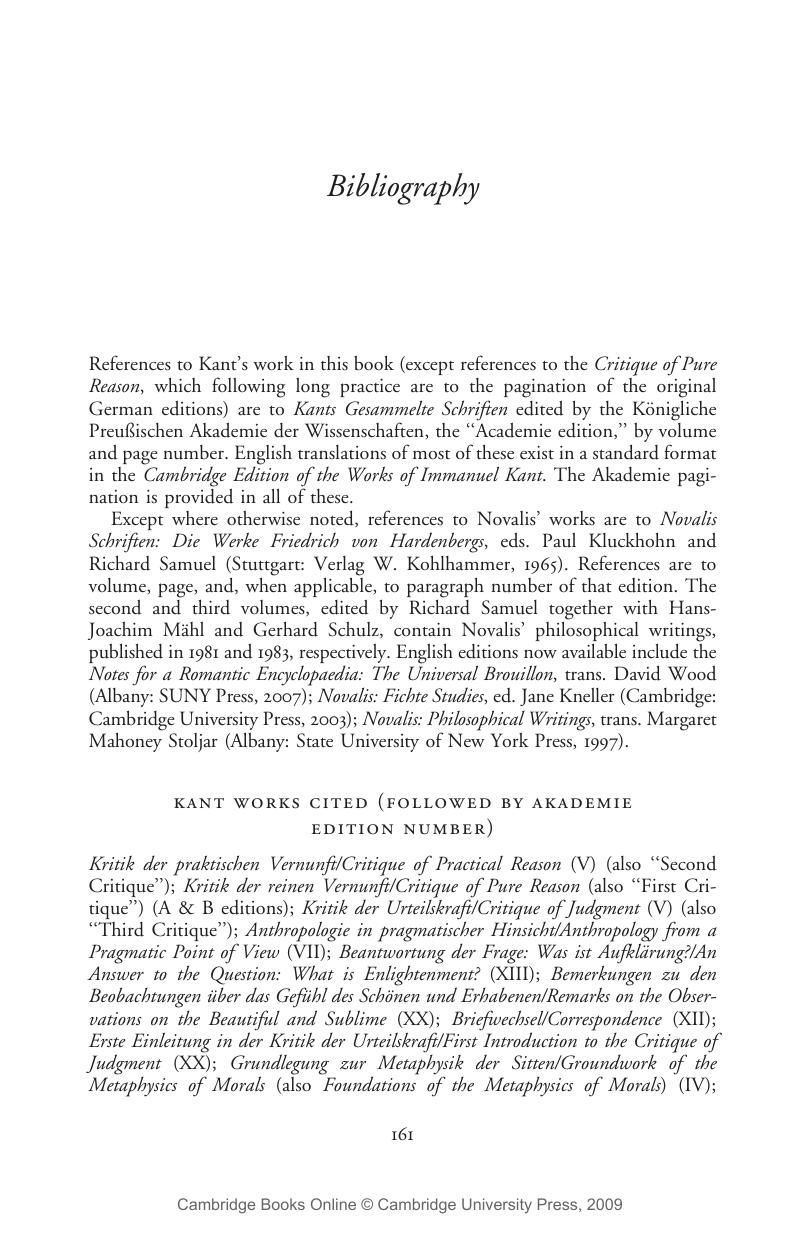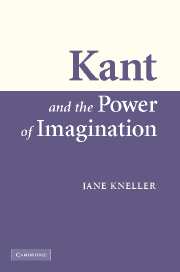Book contents
- Frontmatter
- Contents
- Preface and acknowledgments
- Introduction
- 1 Kant and Romanticism
- 2 The power of imaginative freedom
- 3 The interests of disinterest
- 4 Aesthetic reflection and the primacy of the practical
- 5 The failure of Kant's imagination
- 6 Imaginative reflections of the self in Novalis and Hölderlin
- 7 Novalis' Kantianism and Kant's Romanticism
- Bibliography
- Index
- References
Bibliography
Published online by Cambridge University Press: 22 September 2009
- Frontmatter
- Contents
- Preface and acknowledgments
- Introduction
- 1 Kant and Romanticism
- 2 The power of imaginative freedom
- 3 The interests of disinterest
- 4 Aesthetic reflection and the primacy of the practical
- 5 The failure of Kant's imagination
- 6 Imaginative reflections of the self in Novalis and Hölderlin
- 7 Novalis' Kantianism and Kant's Romanticism
- Bibliography
- Index
- References
Summary

- Type
- Chapter
- Information
- Kant and the Power of Imagination , pp. 161 - 167Publisher: Cambridge University PressPrint publication year: 2007



